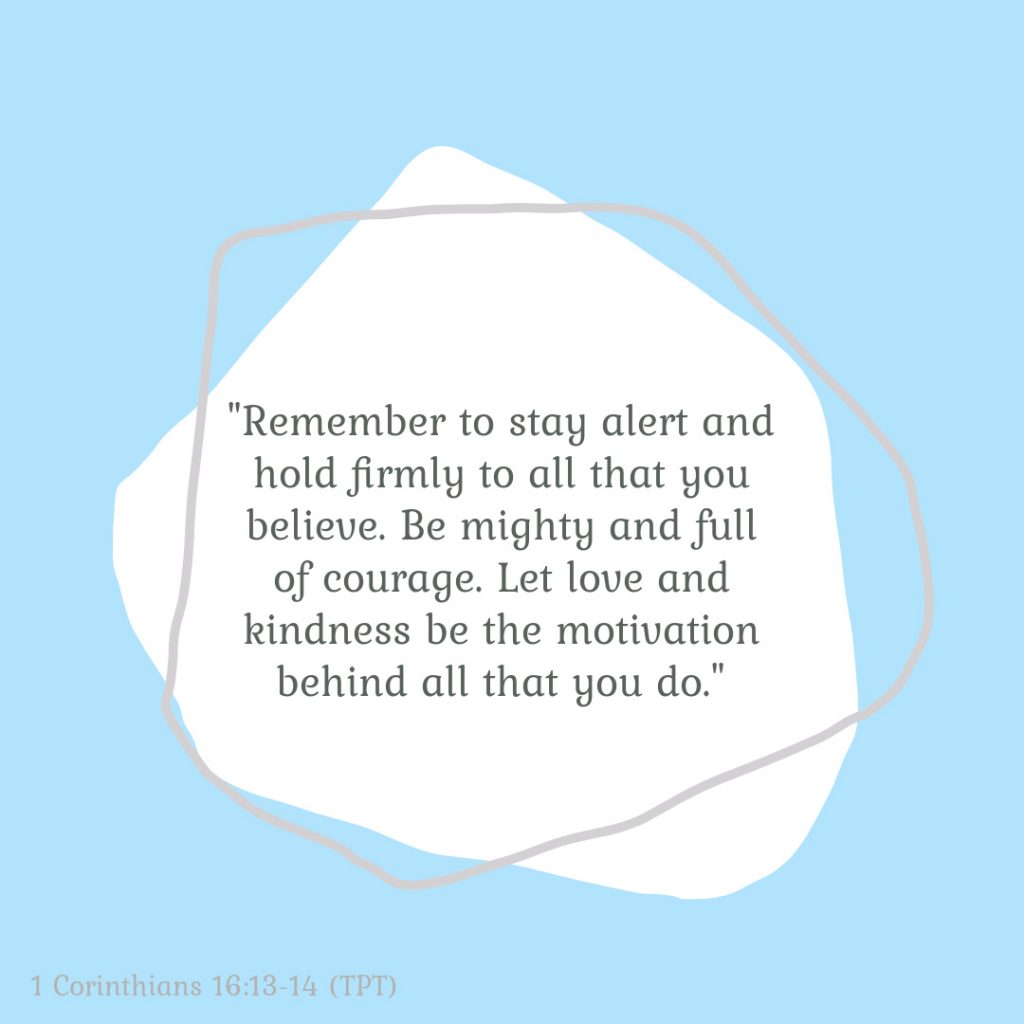I’m going to tell you something that will expose my true nerdiness in all of its glory: one of my very favorite things is when I learn that something I’ve personally experienced or observed is a REAL phenomenon, with an official name and expert-backed definitions. Bonus points if it’s something with studies behind it and plenty of sources for me to research. Such was the case when I came across a new-to-me term in a book recently. Are you ready for it?
The term itself may not be familiar, but I’m certain you will recognize the phenomenon it describes. It has been defined by sociologists as, “the (incorrect) belief that one’s personal attitudes are different from the majorities’ attitudes, and thus one goes along with what they think others think.” In layman’s terms, it’s when we assume our opinion is different from everyone else’s but isn’t; our perspective is actually the predominant one, it just doesn’t feel that way.
A famous fictional instance of pluralistic ignorance is seen in Hans Christian Anderson’s story of the emperor’s clothes. In it, a king is convinced by con artists posing as weavers that he is being presented with the finest clothes in all the land. The catch, according to the weavers, is that the clothes are invisible to anyone who is stupid or incompetent. The king is unable to see the clothes which are, in fact, nonexistant; but not wanting to admit his ignorance, he proceeds to don them and parades throughout the town in his transparent suit. The town members, who also fear being seen as stupid, go along with the ruse. Only a young child is willing to blurt out the truth known to all: there are no clothes, and the only stupid people are the ones pretending to see clothes that are not there.

We can’t imagine a fantastical story like this one playing out in real life, but the truth is that it is happening all around us. We go along with what we know is false because we assume WE must be the stupid or crazy ones for not seeing what seems clear to everyone else. We are quick to assume that if media and politicians and leaders are spouting a particular message that doesn’t sit well with us, the problem lies with us and not them. We are the victims of societal gaslighting, failing to speak the truths we can see because we assume our opinion must be wrong or, at the very least, unimportant.
Like all harmful phenomena, pluralistic ignorance is a tactic pulled straight from the devil’s playbook. It is grounded in deception and breeds confusion and fear, creating a reluctance to call out untruth for what it is. In the face of what we presume will be societal ostracism (i.e., canceling) we keep our mouths shut, not realizing that everyone around us is doing the same. We are unknowing members of a silent majority whose existence is buried beneath layers of cultural conformity and a refusal to emerge from our ideological comfort zones.
How many historical atrocities might have been avoided if the silent majority had spoken out? Slavery, the rise of the Nazi party, the proliferation of racism—these are just the most obvious examples. Countless other instances of fear-induced silencing have played out over the course of history, and they are going on today.
Everyone has an opinion these days. Sadly, only some of those opinions are deemed appropriate to share. Those of us whose ideas (on anything from viruses to gender ideology) divert from the opinions-posing-as-facts espoused by “higher ups” keep our perspectives to ourselves, even though we feel certain there may be something to our alternative views.
Not all mainstream narratives are false, and I don’t mean to imply otherwise. Sometimes our “unpopular” views truly are unpopular for a good reason. The emperor isn’t always naked; occasionally it is our own eyes that are in need of adjustment. The problem is that there is no way of knowing whether or not we have fallen prey to pluralistic ignorance if we refuse to express our concerns. How will we be able to discern whether we are wrong or if they are if we won’t address that elephant in the room? The potential for finding a middle ground is nonexistent if we don’t admit that we have been existing in different territories.

I may be wrong in this, but to me it seems the only solution to this problem is to talk about the issues that are concerning us. And by “talk,” I mean respectful face-to-face discourse in the context of healthy relationships with people whose opinions actually matter to us. These controversial issues aren’t ones to bring up at the start of a friendship, or in a social media rant, or in circles where we already know where everyone stands (and it’s not with us). These are not sound-bite issues or small talk fodder. We must establish community and connection FIRST before we broach these potentially prickly topics. And when we do, we must do so gently, remaining open to discovering that we are, in fact, outliers with our beliefs. But we must also stay open to encountering a presence of others who agree with us, but were too afraid to say so.
I won’t list out the hot-button issues that could apply here, but I’m sure you’ve got a few in mind. What falsehoods are you seeing perpetuated that go against what you feel in your heart to be true? What outlandish ideas do you see culture embracing to its own detriment? What trends are you noticing that you’re just not on board with? (I’m talking about more than the Mom Jeans trend here. . . though if more of us had spoken out on how truly unflattering those jeans are, we might have sidestepped this blight on fashion history. Alas, our pluralistic ignorance with denim-wear has made too many girls victims of this sartorial disaster.)
We NEED to be having open, honest dialogue about these things. Not out of hostility or defensiveness or an eagerness to be divisive, but with curiosity and a genuine passion for all that is true. If it turns out that we really are the ones in the wrong, we will benefit from gentle correction and explanation from those on “the other side.” But we may be pleasantly surprised to find like-minded companions, and our own nonconformity may inspire a similar openness to speak up and speak out.
We are wading into scary territory here, and I wouldn’t want to forge these hostile waters without the guidance of the Author of Truth Himself. Lord God, please help us in this. Give us eyes to see rightly and courage to set aside our discomfort and fear as we call out lies for what they are. May our truthful words be wrapped with grace and humility and a desire for genuine, enduring truth to prevail. Lead us not into the traps of deception and evil ideology; deliver us from our perceived ignorance and let us shine with your light into a darkened world that is in desperate need of You.

Excellent.
Thank you!